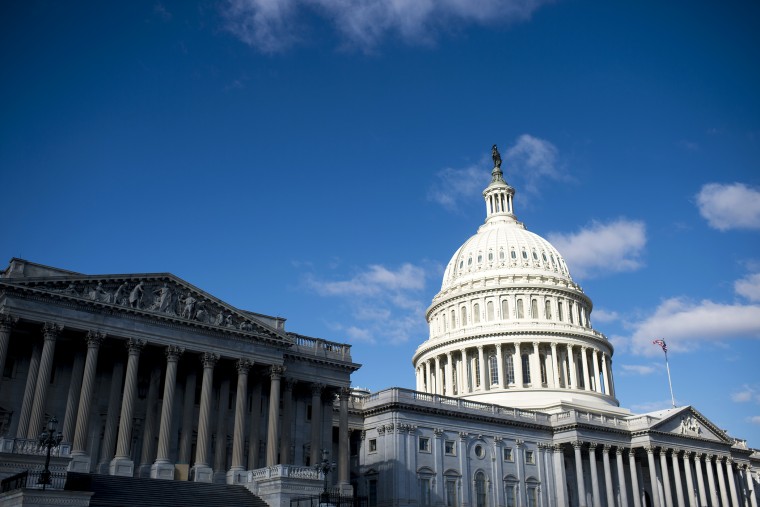Senate Majority Leader Harry Reid (D-Nev.) no doubt understands that his party's majority status is in jeopardy and his eight-year run heading the chamber may be wrapping up at the end of this Congress. The question is what he intends to do with the next several months.
Part of the focus will be on what Senate Democrats call their "Fair Shot" agenda. Republicans have already killed proposals on pay equity and the minimum wage, but Dems still have other policy measures in mind -- including an upcoming fight on college affordability -- that the party hopes will leave them better positioned for the midterm elections.
But Reid is also thinking ahead when it comes to confirmation votes.
Yesterday, for example, the Senate confirmed Kansas Supreme Court Justice Nancy Moritz to fill a vacancy on the 10th U.S. Circuit Court of Appeals. There's been a lot of these kinds of votes lately.
On Thursday the Senate confirmed two district-court judges. The day before, six other district-court judges were confirmed, which followed an appeals-court confirmation the day before that. In late March, shortly before the Senate broke for its Spring recess, the chamber confirmed another appeals-court nominee and four other district-court nominees.
All told, we haven't seen a flurry of jurists fill vacancies on the federal bench like this in quite a long while. And as Jonathan Bernstein noted, all of this progress stems from one important decision last fall.
We ... got confirmation that Republicans committed a terrible blunder last fall by forcing Senate Majority Leader Harry Reid and the Democrats to invoke the so-called nuclear option, which makes judicial nominations subject to a simple majority vote. The backlog of judicial nominations isn't cleared. But there are fewer than 80 vacancies, and the number is dropping. Appellate vacancies are being filled, too.... The decrease isn't dramatic, yet. But majority-imposed reform has mattered anyway. Most obviously, Republicans no longer can block a handful of nominees they oppose most strongly.
Had it not been for the so-called "nuclear option," we almost certainly would not see all of this progress.
And had it not been for a misguided Republican strategy, the "nuclear option" wouldn't have happened at all.
Remember, the GOP minority practically dared Senate Democrats to act. Republicans pushed obstructionism to levels literally without precedent in American history -- even going so far as to say they would lock every nominee for the D.C. Circuit, regardless of merit -- effectively giving Democrats no choice but to restore traditional Senate norms and reestablish majority rule on confirmation votes.
Had Republicans not pushed so hard, the pre-nuclear rules would still be in effect and the GOP minority would still be in a position to stop at least some of these recent nominees. Democrats would have gritted their teeth, but they widely agreed the "nuclear option" was a last resort.
And so Republicans pushed them to the breaking point -- and are now dealing with the consequences.
It's too soon to credibly claim President Obama and Senate Dems are moving the federal judiciary to the left. But by some measures, Obama's judicial nominees are some of the most progressive in a generation and thanks to GOP excesses, more of these nominees are receiving their lifetime confirmations.
